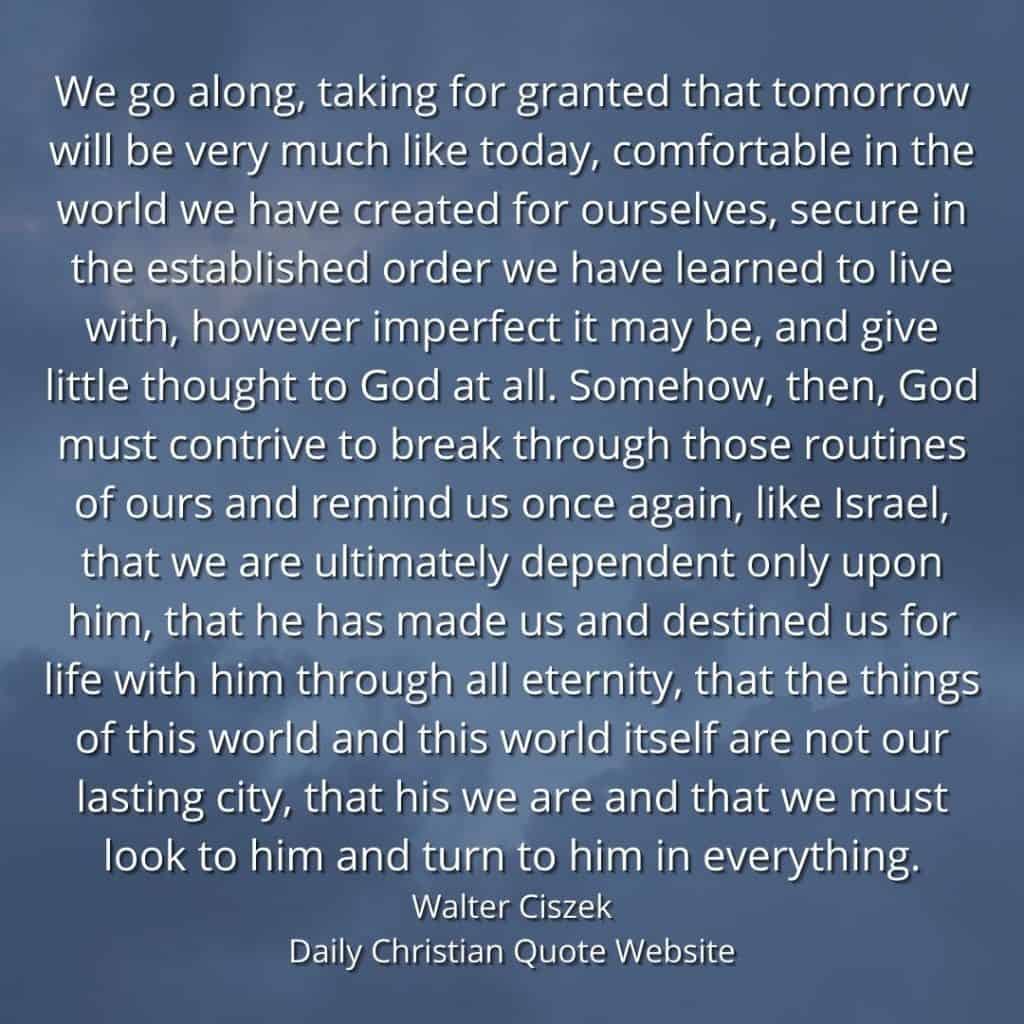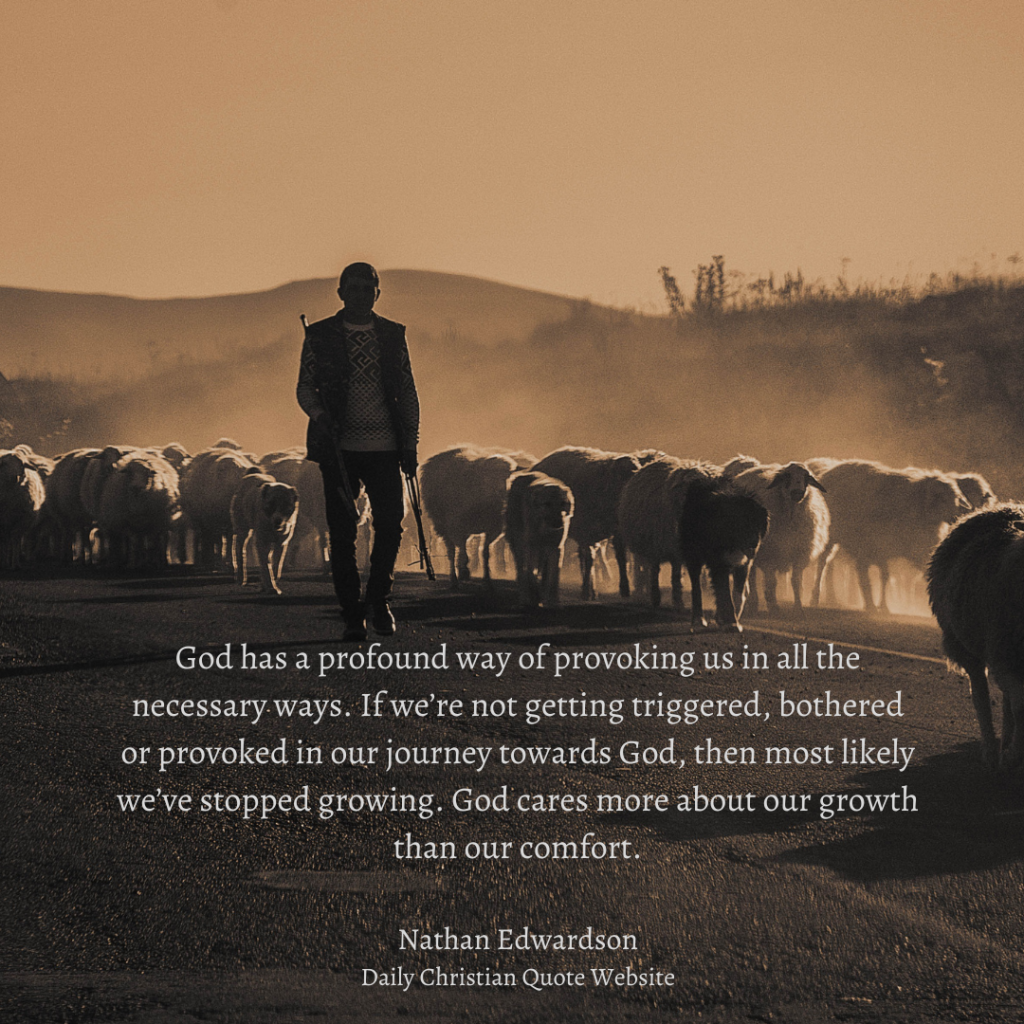Satan has in fact a plan against the saints of the Most High which is to wear them out. What is meant by this phrase, “wear out”? It has in it the idea of reducing a little this minute, then reducing a little further the next minute. Reduce a little today, reduce a little tomorrow. Thus the wearing out is almost imperceptible; nevertheless, it is a reducing. The wearing down is scarcely an activity of which one is conscious, yet the end result is that there is nothing left. He will take away your prayer life little by little, and cause you to trust God less and less and yourself more and more, a little at a time. He will make you feel somewhat cleverer than before. Step by step, you are misled to rely more on your own gift, and step by step your heart is enticed away from the Lord. Now, were Satan to strike the children of God with great force at one time, they would know exactly how to resist the enemy since they would immediately recognize his work. He uses the method of gradualism to wear down the people of God.
Complacency
Nathan Edwardson
Walter Ciszek

We go along, taking for granted that tomorrow will be very much like today, comfortable in the world we have created for ourselves, secure in the established order we have learned to live with, however imperfect it may be, and give little thought to God at all. Somehow, then, God must contrive to break through those routines of ours and remind us once again, like Israel, that we are ultimately dependent only upon him, that he has made us and destined us for life with him through all eternity, that the things of this world and this world itself are not our lasting city, that his we are and that we must look to him and turn to him in everything.
Phillips Brooks
Bad will be the day, for every man when he becomes absolutely contented with the life that he is living, with the thoughts that he is thinking, with the deeds that he is doing, when there is not forever beating at the doors of his soul some great desire to do something larger, which he knows that he was meant and made to do because he is still, in spite of all, the child of God
Francis Frangipane
After forty-five years in ministry, here is what I have seen to be true: Jesus Christ came to comfort the troubled and trouble the comfortable.
Bill Johnson
My comfort must never take precedence over doing anything that brings God glory. We must take risks to see God fully glorified.
David Roher
The adventure of new life in Christ begins when the comfortable patterns of the old life are left behind.
Blaise Pascal
What use is it to us to hear it said of a man that he has thrown off the yoke, that he does not believe there is a God to watch over his actions, that he reckons himself the sole master of his behavior, and that he does not intend to give an account of it to anyone but himself? Does he think that in that way he will have straightway persuaded us to have complete confidence in him, to look to him for consolation, for advice, and for help, in the vicissitudes of life? Do such men think that they have delighted us by telling us that they hold our souls to be nothing but a little wind and smoke — and by saying it in conceited and complacent tones? Is that a thing to say blithely? Is it not rather a thing to say sadly — as if it were the saddest thing in the world?
Joni Eareckson Tada
We can’t afford to be complacent about God’s glory. The fact is that putting your Christian life on autopilot is the same thing as “walking in the flesh.” When we become unaware, when we take something so precious for granted, our prayers become tedious, witnessing becomes dry, jobs become lacklustre, and relationships sag under the weight of selfishness. What’s worse, our communion with our Savior and best friend turns into a chore. The Lord Himself seems to lose vitality in our estimation; He becomes little more than a wooden icon in our hearts, a mere measuring rod for our behaviour—someone who purchased our salvation once upon a time, someone in whom we believe in a general, distracted sort of way.
Cornelius Plantinga, Jr.
The awareness of sin used to be our shadow, Christians hated sin, feared it, flew from it. But now the shadow has faded. Nowadays, the accusation you have sinned is often said with a grin.
